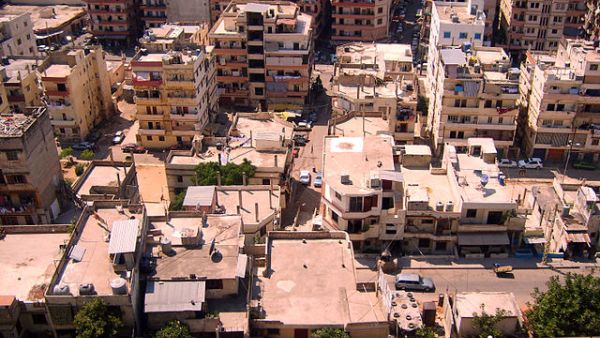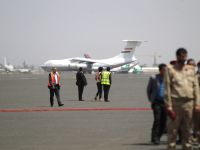Lebanese officials and experts Tuesday reiterated the need to implement the long-delayed public-private partnership law in a bid to reduce government expenses and achieve higher economic growth.
“Creating synergy between the public and private sectors contributes to creating job opportunities while minimizing the public debt and deficit and providing better funding for infrastructure projects,” Economy Minister Alain Hakim said during a conference held at Ecole Superieure des Affaires in Clemenceau.
Dubbed “PPP Opens New Horizons,” the conference aimed at highlighting the positive outcome that results from creating partnership between the public and private sectors in Lebanon.
Hakim emphasized the need to attract local and foreign investment and to utilize the high technical capabilities of those in the private sector who qualify to implement projects vital to the Lebanese economy.
“This can be achieved by funding infrastructure projects, especially in electricity, water, roads, renewable energy and environmental sectors, noting that these projects create hundreds of thousands of job opportunities,” he said.
“Public-private partnership can also increase economic growth to 7 percent,” he said, adding that the quality of infrastructure has a great impact on the productivity level of a country and its capacity to compete in export markets, in addition to attracting foreign investment.
Likewise, Ziad Hayek, secretary-general of the Higher Council for Privatization, said that PPP projects could create over 200,000 job opportunities in only five years, including 80,000 job opportunities for fresh graduates.
Hayek said that there is no way to resurrect Lebanon without investing in infrastructure projects such as electricity, water, communication and transport because the productivity of economic sectors relies heavily on these basic services.
He added that the Higher Council for Privatization has been working hard for the past nine years with Parliament and the government to approve the PPP law because it has the capacity to save Lebanon’s economy from collapsing.
Echoing similar views, Mohammad Choucair, president of the Chamber of Commerce, Agriculture and Industry, said that PPP increases productivity and allows the government to seek better management for the different economic sectors.
French Ambassador to Lebanon Emmanuelle Bonne spoke of the French experience in PPP projects. He emphasized Lebanon’s need to improve its infrastructure by using PPP. “France is ready to provide its expertise to Lebanon in this field,” he said.
According to a report by the World Bank, PPPs are used in more than 134 developing countries and contribute to 15-20 percent of infrastructure investment.
They are also used in developed economies. Infrastructure investment requirement per annum in the UK stands at $33 billion, and 66 percent of this investment is provided by PPP.
Following the opening ceremony, a session about the international experience in PPP was held featuring a speech by Laurence Carter, senior director of PPPs at the World Bank.
Carter said that PPPs are increasingly being used by governments all over the world as a technique to provide infrastructure services to their citizens. “In the first half of 2015, over $25 billion of private investment in energy, transport and water projects were financed in emerging markets, mostly as PPPs. Nearly two-thirds were in energy, one-third in transport and a small share in water,” he said.
Carter said that ratings agency Moody’s maintains a project-finance database of 5,300 projects from 40 banks, dating back 30 years, and accounting for about 60 percent of all project-finance transactions.
He said that these projects showed that cumulative default rates for the infrastructure sector are lower than all other sectors. “They also showed that PPP default rates are even lower, with just 3.9 percent of PPPs defaulting after 10 years, compared with 6.4 percent for all projects.”
Carter assured that the World Bank Group is fully committed to supporting Lebanon to improve its infrastructure services, including through PPPs. “We’ve made an offer to provide advice on structuring and bidding out an independent power plant as the first part of a program of power investments. We are looking at providing a loan for a bus rapid transit system, structured as a PPP,” he said.
Carter added that opportunities for an expanded PPP program in Lebanon are good. “There is a consensus around the need for more infrastructure services, especially in energy. Lebanese investors are already investing in energy projects in other countries. Lebanese banks are liquid. And there is pressure to find job-creating activities,” he said.
He continued: “The Higher Council for Privatization exists; the PPP office is staffed and in place; a draft law has been prepared for Parliament; a program of energy projects has been identified. The only remaining challenge is execution.”
By Dana Halawi








